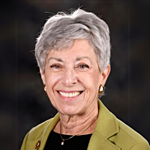A growing body of evidence shows that plastics and associated toxic chemicals contribute to neurodevelopmental disabilities and cognitive deficits in children. The global crisis of plastic production and waste is increasing exponentially. Today’s infants are born with their brains and bodies already burdened by plastics: micro- and nano-plastic particles have been found in the placenta and in newborns’ first stool, and further exposures occur through breastmilk and infant formula.
A briefing paper by Project TENDR synthesizes the latest science on fetal and early childhood exposures to plastics and the resulting harm to children’s developing brains. It outlines the widespread exposure to plastics and associated chemicals, such as ortho-phthalates, bisphenols, and flame retardants, which are linked to cognitive deficits and developmental disabilities in children.
The paper makes several recommendations to strengthen the global plastics treaty, including measures to address the toxicity and proliferation of plastics, and to regulate chemicals by class. Following the recent wrap-up of the third round of treaty negotiations in May, the treaty is set to begin the final session of negotiations in October 2024.
In this webinar, Dr. Linda Birnbaum, Dr. Carmen Marsit, and Maureen Swanson discussed how children’s developing brains are harmed by the effects of plastics and toxic chemicals in plastics.
Featured Speakers

Carmen J. Marsit, PhD, is Executive Associate Dean for Faculty Affairs and Research Strategy, Rollins Distinguished Professor of Research, and Professor in the Gangarosa Department of Environmental Health and Department of Epidemiology at the Rollins School of Public Health of Emory University. Dr. Marsit also leads a multi-disciplinary research program focused on understanding the impacts of the pre- and perinatal environments on maternal and child health, utilizing the tools of genomics, epigenomics, and bioinformatics to uncover mechanisms underlying the impact of the environment on health within epidemiologic studies. He serves as Director of the NIEHS-funded Emory HERCULES Exposome Research Center and Training Program in the Environmental Health Sciences and Toxicology. Dr. Marsit received his BS in Biochemistry from Lafayette College and his PhD in the Biological Sciences in Public Health from Harvard University.

Dr. Linda S. Birnbaum is a toxicologist, microbiologist, and Scientist Emeritus and former director of the National Institute of Environmental Health Sciences and National Toxicology Program, as well as a Scholar in Residence at the Nicholas School of the Environment at Duke University. As NIEHS director, Dr. Birnbaum oversaw research grants and shared the results of cutting-edge environmental health research with the public and policy makers. She also met with communities, including in Alaska, to better understand environmental health concerns and disparities. Throughout her career, Dr. Birnbaum has been particularly effective at bringing forward the mounting scientific evidence of harm of exposures to certain chemicals that are now ubiquitous in our products and environment.

Maureen Swanson, MPA, is the Director of Environmental Risk Reduction & Project TENDR (Targeting Environmental Neurodevelopment Risks), a program of The Arc and a collaborative of scientists, health professionals, and advocates working to protect children from toxic chemicals and pollutants that harm brain development. Project TENDR prioritizes ending the disproportionate exposures to these chemicals and pollutants and greater impacts experienced by children from families with low incomes and families of color. As the Healthy Children Project director for the Learning Disabilities Association of America, Maureen helped to coalesce and lead health organizations for the Safer Chemicals Healthy Families coalition, which successfully advocated for the 2016 revision of the Toxic Substances Control Act. Prior to that, she was an environmental policy analyst for the State of Minnesota. Maureen co-founded Project TENDR in 2015.
 This webinar was hosted by the CHE-Alaska Partnership, which is coordinated by Alaska Community Action on Toxics (ACAT). Driven by a core belief in environmental justice, ACAT empowers communities to eliminate exposure to toxics through collaborative research, shared science, education, organizing, and advocacy.
This webinar was hosted by the CHE-Alaska Partnership, which is coordinated by Alaska Community Action on Toxics (ACAT). Driven by a core belief in environmental justice, ACAT empowers communities to eliminate exposure to toxics through collaborative research, shared science, education, organizing, and advocacy.
